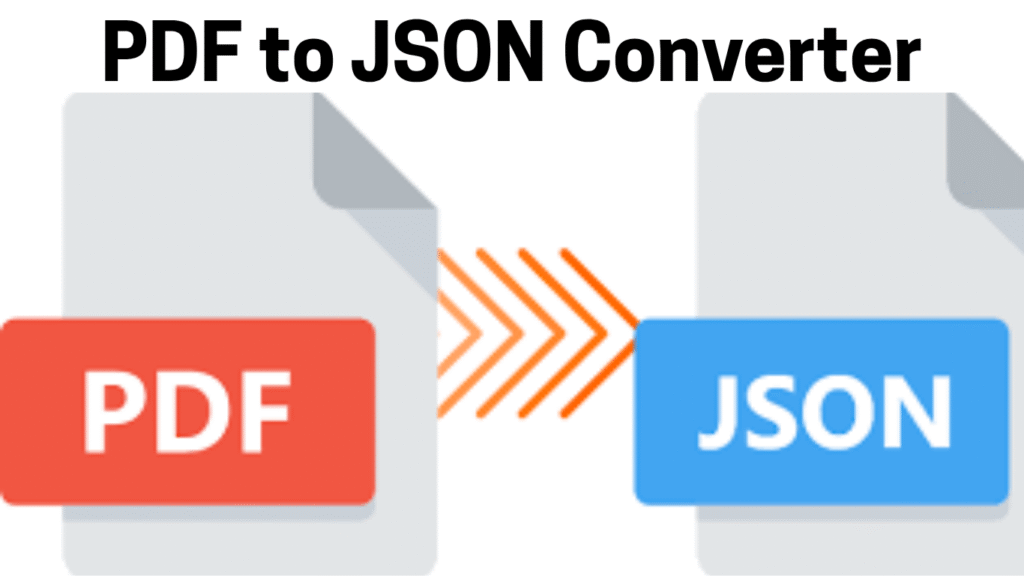PDF to JSON Converter
Convert PDF documents to structured JSON format
Drag and drop PDF file here
or
Processing PDF…
What is a PDF to JSON Converter?
A PDF to JSON converter is an online or software-based tool that transforms the data inside a PDF file into JSON (JavaScript Object Notation) format. This conversion is crucial when you want to move from a visual document layout to structured, machine-readable data that can be used in web development, APIs, automation scripts, or databases.
PDF files are known for their visual fidelity, but they are not ideal for extracting structured information. JSON, on the other hand, is lightweight, easy to parse, and widely supported across programming languages. That’s why converting PDF to JSON is especially beneficial in modern digital workflows.
Why Convert PDF to JSON?
Converting PDF to JSON provides a wide range of benefits depending on your goals. Here’s a breakdown of its primary use cases and advantages:
1. Structured Data Extraction
PDFs typically store data in a fixed layout that is hard to programmatically manipulate. Converting to JSON gives you a structured format with key-value pairs, making it easier to extract, edit, and use the data.
2. Enhanced Automation
Developers and businesses frequently use automation to streamline workflows. With a PDF to JSON converter, you can automate data retrieval from documents like:
- Invoices
- Financial reports
- Purchase orders
- Survey results
3. Developer Integration
JSON is a native data format for JavaScript and easily integrates with:
- Node.js applications
- MongoDB databases
- Firebase backends
- REST APIs
This makes the PDF to JSON conversion essential in development environments where real-time data access and manipulation are required.
4. Time and Cost Savings
Manually copying data from PDFs is time-consuming and error-prone. Automating the process with a converter improves efficiency, reduces human error, and saves money.
How Does a PDF to JSON Converter Work?
A modern PDF to JSON converter uses a combination of parsing algorithms and data recognition techniques, including:
- Text extraction: Identifying readable text within the PDF.
- Table recognition: Detecting and converting tables into nested JSON objects.
- Field mapping: Assigning field names to data points (e.g., “Name”: “John Doe”, “Amount”: “$500”).
- Optical Character Recognition (OCR): For scanned PDFs, OCR is used to convert image text into digital format.
Once processed, the converter outputs a .json file with a structured schema ready for use in software applications.
How to Use an Online PDF to JSON Converter
Using a web-based converter is fast and simple. Here’s how it works:
- Go to the Converter Tool – Visit a reliable site like ConvertHelping.com.
- Upload your PDF File – Drag and drop or browse your local files.
- Click “Convert” – The tool will process the file and generate a JSON output.
- Download the JSON File – Save it for further use or integration into your project.
Most tools offer:
- Free usage
- No login requirements
- Fast conversions
- Data privacy assurance
Common Use Cases for PDF to JSON
✅ Developers
Extract data from documents and integrate it into web apps or software environments.
✅ Data Analysts
Parse PDFs into structured formats to prepare datasets for tools like Excel, R, or Python.
✅ Accountants & Businesses
Convert receipts and invoices for automated accounting systems.
✅ Students & Researchers
Turn research PDFs into structured formats for analysis and visualization.
Key Features to Look For in a Converter
| Feature | Benefit |
|---|---|
| Batch Conversion | Save time by converting multiple PDFs at once. |
| Secure & Private | Your data is not stored or shared. |
| JSON Schema Customization | Adjust the output to match your backend or database. |
| Cross-Platform | Works on all modern browsers and devices. |
| Free & No Signup | Instant access with no registration hassle. |
Best Practices for Accurate PDF to JSON Conversion
- Use Native PDFs instead of scanned images to ensure clean extraction.
- Check Table Formatting – Make sure tabular data is aligned for better recognition.
- Verify Output – Double-check the JSON file to confirm the structure is as expected.
- Use OCR for Scanned Documents – Choose a tool with OCR support if your PDFs are image-based.
Conclusion
The PDF to JSON converter is an indispensable tool for anyone working with data-driven applications. It simplifies the transition from static documents to dynamic data structures. Whether you’re a developer, business owner, or analyst, converting PDFs to JSON unlocks new possibilities for automation, analysis, and integration.
Looking for a quick and accurate solution? Try our free PDF to JSON Converter and streamline your workflow today.
- Learn more about JSON format on MDN Web Docs (Dofollow link to Mozilla)
- Explore Adobe’s guide to working with PDFs (Dofollow link to Adobe)
- Read about OCR technology used in scanned PDF to JSON conversion (Dofollow link to Wikipedia)
Internal Links (Recommended for SEO)
Let me know if you’d like a custom HTML layout for embedding this content into your website or any other specific tool integration like JSON formatting or data preview features.

